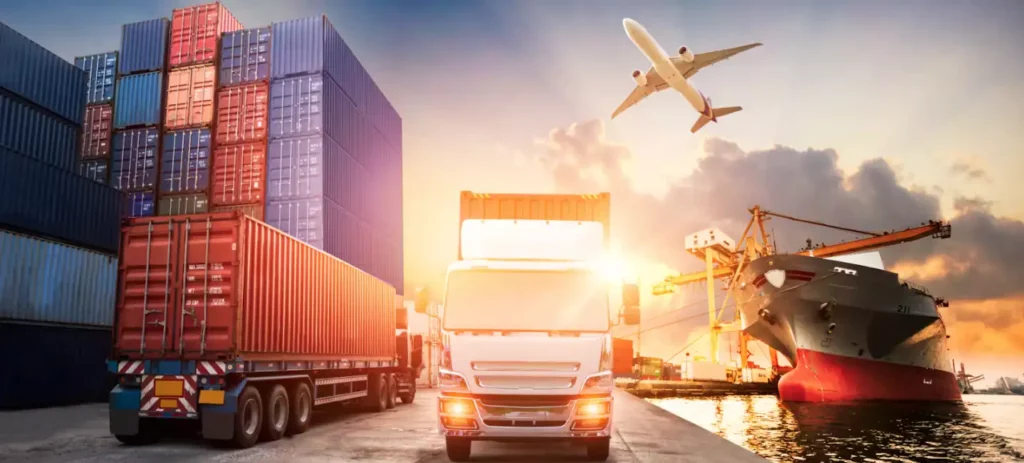
Logistics compliance might sound like a complex term, but in simple words, it's about following the rules and regulations when moving goods from one place to another. Imagine you're sending a package to a friend; there are rules to follow, like filling out the right forms, declaring what's inside, and abiding by safety guidelines.
Now, imagine there's a rule book for this intricate process – a set of guidelines and regulations that ensure everything runs smoothly and safely. This book of rules is called logistics compliance, and it plays a very important role in keeping our goods moving.
But here's the catch: those rules keep changing. New laws, international agreements, and global events can flip the script overnight. That's where continuous learning steps in. Continuous learning in logistics compliance isn't just about reading books or attending classes; it's about adapting and growing with the industry.
So, in this write-up, we will explain why continuous learning is important for logistic compliance with rules which are always changing and different from one location to another.

Understanding Logistics Compliance
Logistics compliance is basically about following these rules and making sure everything is done the right way when goods are moving around. It's like making sure a pizza gets to your house without any problems. If the pizza delivery person follows the rules (like driving safely and not forgetting your toppings), your pizza arrives hot and delicious. In the same way, logistics compliance helps goods get where they need to be safely and on time.
Key Regulations and Standards
Now, these rules are not the same for everything and everywhere. Some are for certain things, such as medications or substances that are dangerous. Others are for when things are sent between different countries. These international criteria make sure that everyone acts by the same rules while working across boundaries of countries.
Industry-specific regulations: Some rules are just for certain industries, like the FDA (that's the Food and Drug Administration) for medicines or the DOT (Department of Transportation) for truck safety.
International regulations (e.g., INCOTERMS, customs requirements): When things cross borders and go from one country to another, there are international rules to follow. These rules, like INCOTERMS (which decide who pays for what in a shipment) and customs requirements (what paperwork you need to get stuff into a country), help keep global trade running smoothly.
Common Challenges in Logistics Compliance
Following all these rules isn't always a piece of cake. Some of the challenges are below:
Changing Regulations
Imagine if the speed limits on the road changed every month. That's kind of what it's like with logistics rules. Because they have the power to change, it is important to remain or continue to know all the information.
Complex Documentation
Paperwork is a big part of logistics compliance. A lot of papers and documents, writings are involved when we ship things. Logistics is not just about putting stuff in a box and sending it off to wherever. To ensure that everything is lawful and on record, you have to fill out paperwork and documentation. This paperwork can sometimes feel like filling out a never-ending stack of forms.
Data management
Imagine keeping track of all the places you have driven your car, the fuel you have used, and any accidents or issues you have come across. All the information about where a product is, where it's going, and how it is getting their needs to be well-kept and safe. This can be a challenge with so much data flying around.

Continuous Learning: A Necessity in Logistics Compliance
Continuous learning is like keeping your driving skills sharp by taking extra driving lessons or staying updated on the latest traffic rules. Similarly, in logistics compliance, continuous learning is like regularly checking your map to navigate through the complex terrain of rules and standards.
Benefits of Continuous Learning in Logistics Compliance
There are a lot of benefits for a logistics company when they have a culture of unstopped learning, here are a few of the benefits:
Enhanced Risk Management
Just like knowing the rules of the road helps you avoid accidents, continuous learning in logistics compliance helps companies avoid problems like fines or delays. For example, let's say a new customs regulation is introduced that affects the documentation requirements for imported goods.
If your team is continuously learning and aware of these changes, they can quickly adapt your processes to ensure compliance. It also reduces the possibilities of spending a lot of money on delays, punishments because you did not follow rules, or even legal battles caused by non-compliant shipping.
Improved Operational Resilience
Operational resilience is the ability to withstand and recover from disruptions effectively. Continuous learning provides your business with the knowledge and quickness it needs to improve working ability during times that things you did not plan happen, and you need to take actions to keep you in business.
For example, during a global pandemic, supply chains experienced unprecedented challenges. Companies that had invested in continuous learning were better prepared to navigate these disruptions. They will be able to quickly change those supplying products, find different ways to move, and put safety standards in place, to make sure that the company survives.

Tools and Resources for Continuous Learning
The right tools, equipment or strategies matter when you want to comply with all rules as a logistics company that puts value on increasing the knowledge of the workers. Some of these tools are:
Employee Logistics Training Solutions
Logistics LMS training system works like an online class for your logistics staff. They provide lessons as well as materials that break down difficult compliance subjects into simple ones that will be easy to understand and access.
This lets you know the people working for you are well-prepared, understand what is going on, and do not fall behind on compliance requirements, and this will reduce the risk of accidents and mistakes. It's the same as giving additional education to your drivers so that they are able to drive the roads without harm or injury.
Industry Associations and Conferences
Industry associations and conferences are like annual gatherings where logistics professionals come together to exchange knowledge and experiences. These groups of people usually provide meetings and activities where you can join training classes that fit your personal goals or problems.
Software Solutions for Compliance Management
Think of compliance management software as a digital checklist and organizer for all your compliance requirements. It collects information about rules, essays, and dates into a particular place, so you don't miss any of the new information.
Summary of the Write-Up
In a world where logistics compliance rules are ever-changing and differ from one location to another, embracing continuous learning becomes not just a necessity but a strategic advantage.
Just as we obey traffic laws to ensure safe and efficient travel, logistics compliance is about adhering to the ever-changing regulations and standards to guarantee the smooth flow of goods from one point to another. So, remember, in the logistics compliance journey, continuous learning is your constant companion, helping you navigate the twists and turns of the regulatory landscape and reach your destination safely.

